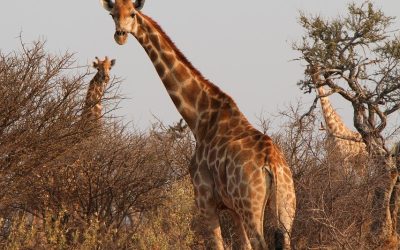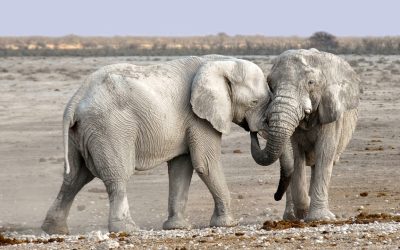So, you’re looking for an adventurous hunting experience in an unforgettable location? Well, look no further than the Nyaminyami Safari Area. With its vast landscapes and diverse wildlife, this hidden gem in Africa offers the perfect setting for those seeking an adrenaline-filled hunting expedition.
From tracking elusive game to honing your marksmanship skills, Hunting in Nyaminyami Safari Area promises an experience like no other. Get ready for a once-in-a-lifetime adventure that will leave you with lasting memories and a newfound appreciation for the thrill of the hunt.
Location
Geographical Overview
Situated in the northeastern part of Zimbabwe, the Nyaminyami Safari Area is a mesmerizing landscape. It encompasses the southern shore of Lake Kariba, offering stunning views of the vast blue waters and surrounding mountains. This region is characterized by its diverse wildlife and lush vegetation, including miombo woodlands and expansive floodplains. The area’s unique geography and serene beauty make it a prime location for hunting enthusiasts to embark on their adventures.
Wildlife Diversity
Nyaminyami Safari Area boasts an impressive diversity of wildlife, making it a haven for hunting enthusiasts. With a wide range of species including big game and small game, hunters are presented with a thrilling challenge. Species such as elephant, lion, leopard, buffalo, and hippopotamus roam freely within the safari area. Additionally, there are abundant opportunities to pursue smaller game such as impala, zebra, warthog, and various antelope species. The rich biodiversity ensures that every hunting expedition in Nyaminyami Safari Area is filled with excitement and adventure.
Accessibility
Despite its remote location, the Nyaminyami Safari Area is easily accessible for avid hunters. International travelers can reach the area by flying into Zimbabwe’s capital city, Harare, and then taking a domestic flight to Kariba. From Kariba, a short drive or boat transfer will lead you to the heart of the safari area. It is advisable to book your transportation and accommodations in advance to ensure a seamless arrival and departure.
Hunting Regulations
Permits and Licenses
Hunting in the Nyaminyami Safari Area requires proper permits and licenses to ensure responsible and sustainable hunting practices. Visitors must obtain a hunting permit from the Zimbabwe Parks and Wildlife Management Authority, which details the specific species allowed for hunting and the duration of the hunting season. Additionally, hunters are required to hold a hunting license, which can be obtained through licensed outfitters or hunting agencies. Adhering to the regulations and obtaining the necessary documents is crucial for a legal and enjoyable hunting experience.
Species Restrictions
While the Nyaminyami Safari Area offers a wide range of game species, it is important to be aware of the species restrictions in place. Certain protected or endangered species may be off-limits for hunting. This includes species such as rhinoceros, cheetah, and wild dog, among others. It is essential for hunters to familiarize themselves with the specific regulations and restrictions to ensure ethical and responsible hunting practices.
Hunting Seasons
The Nyaminyami Safari Area follows designated hunting seasons, carefully planned to align with conservation efforts and wildlife population management. The hunting seasons vary depending on the species, with specific periods allocated for each game category. These seasons are predetermined to ensure sustainable hunting practices. It is essential for hunters to familiarize themselves with the specific hunting seasons for their desired game species, as these may vary from year to year.
Game Species
Big Game
The Nyaminyami Safari Area is renowned for its exceptional big game hunting opportunities. The region is home to majestic creatures such as elephants, lions, leopards, buffalos, and hippos. Hunting these formidable animals requires skill, patience, and respect for the prey. Tracking and stalking techniques are often employed in pursuit of big game. Hunters should be prepared for an adrenaline-fueled experience and a deep appreciation for the power and beauty of these magnificent creatures.
Small Game
For those seeking a different hunting experience, the Nyaminyami Safari Area also offers abundant small game species. From impala to zebra, warthog to various antelope species, hunters have plenty of options to choose from. Pursuing small game provides opportunities to refine shooting skills and enjoy a challenging hunt in a more intimate setting. Exploring the diverse habitats and adapting to different hunting techniques are essential when pursuing small game in Nyaminyami.
Endangered Species Protection
As part of its commitment to conservation, the Nyaminyami Safari Area strictly prohibits the hunting of endangered species. This includes animals such as rhinoceros, cheetah, wild dog, and others experiencing population declines. Protecting these species ensures the preservation of their habitats and genetic diversity. Hunters can contribute to conservation efforts by respecting these restrictions and maintaining a focus on the sustainable hunting of non-endangered species.
Hunting Techniques
Spot and Stalk
Spot and stalk is a popular hunting technique used in the Nyaminyami Safari Area. This method requires keen observation skills and a stealthy approach. Hunters scan the landscape, searching for game animals from a distance. Once spotted, they carefully close the gap, utilizing natural cover to remain undetected. This technique offers an exciting and challenging hunt, allowing hunters to immerse themselves in the surrounding environment and test their abilities.
Blind Hunting
Blind hunting, also known as stand hunting or ambush hunting, is another technique employed in the Nyaminyami Safari Area. This technique involves waiting at a concealed location, such as a strategically placed blind or tree stand, for game animals to pass by. Patience and a good understanding of animal behavior are crucial for successful blind hunting. This method is particularly effective for species that have predictable movement patterns, offering hunters an opportunity for a precise shot.
Calling
Calling is commonly used for hunting specific species in the Nyaminyami Safari Area. Hunters mimic the vocalizations of animals to attract them or elicit a response. Calling can be particularly effective for species such as predators and certain game birds. Skilled hunters use various calls, such as distress calls or mating calls, to entice their quarry. Mastering the art of calling requires practice and understanding of the target species’ behaviors and vocalizations.
Tracking
Tracking is an ancient and thrilling hunting technique used effectively in the Nyaminyami Safari Area. Skilled hunters follow the tracks and signs left by game animals, interpreting their movements and behavior. This method requires a deep knowledge of animal tracks, scat, and other signs, as well as the ability to analyze the surrounding environment. Tracking adds an element of suspense and connection to nature, as hunters become intimately attuned to the wilderness around them.
Guided Hunts
Professional Guides
Embarking on a guided hunt in the Nyaminyami Safari Area provides numerous advantages for both seasoned and novice hunters. Professional guides possess extensive knowledge of the area, wildlife behavior, and hunting techniques. They ensure a safe, organized, and personalized hunting experience. Guides share invaluable insights, sharpening your skills and increasing the likelihood of a successful hunt. Their expertise allows you to fully immerse yourself in the wildlife, culture, and adventure of Nyaminyami.
Equipment and Accommodation
Guided hunts in Nyaminyami Safari Area often provide the convenience of equipment rental and comfortable accommodations. Quality hunting gear, such as firearms, ammunition, and specialized optics, can be provided by the guiding outfitter. Accommodation options range from well-appointed lodges to comfortable tented camps, ensuring a relaxing and rejuvenating experience after a day of hunting. These amenities allow you to focus solely on the pursuit of game and make the most of your time in the safari area.
Pricing and Packages
The cost of guided hunts in Nyaminyami Safari Area varies depending on factors such as the duration of the hunt, the number of hunters in the group, and the species being targeted. Most guiding outfitters offer customizable packages to suit individual preferences and budgetary constraints. These packages typically include services such as lodging, meals, guiding, and field preparation of harvested animals. Proactive communication with the outfitter will help ensure that all aspects of the hunting experience are clearly understood, including any additional costs or potential surcharges.
Local Culture
Indigenous Tribes
The Nyaminyami Safari Area is rich in cultural heritage and home to indigenous tribes, such as the Tonga and Korekore. These communities have a deep connection with the land and wildlife, with hunting playing a significant role in their traditions. Interacting with these tribes offers a unique opportunity to learn about their history, customs, and traditional practices. Respectful engagement and appreciation for their culture contribute to a meaningful and mutually enriching experience.
Traditional Hunting Practices
Indigenous tribes in the Nyaminyami Safari Area have practiced hunting for generations, incorporating traditional methods and rituals. Traditional hunting practices often emphasize a deep appreciation for nature, sustainable resource utilization, and spiritual connections with the animals being pursued. Learning about these traditional practices provides a deeper understanding of the intrinsic relationship between humans and wildlife, fostering a greater respect for the natural world.
Respect for Cultural Heritage
When engaging with local communities in the Nyaminyami Safari Area, it is essential to approach their cultural heritage with respect and sensitivity. Observing local customs, seeking permission before entering communal lands, and adhering to cultural protocols are crucial aspects of responsible tourism. By actively supporting and respecting the cultural heritage of the indigenous tribes, hunters promote cultural preservation and create a harmonious relationship between the hunting community and the local people.
Safari Experience
Photographic Safaris
For those seeking a non-consumptive experience, photographic safaris are a popular choice in Nyaminyami Safari Area. These safaris allow visitors to capture breathtaking images of the region’s stunning landscapes and wildlife. Accompanied by experienced guides, photographers have the opportunity to photograph wildlife from a safe distance and learn about the intricate details of the ecosystem. Photographic safaris offer a chance to witness the beauty of Nyaminyami while respecting the animals’ natural behaviors and habitats.
Bird-Watching
Nyaminyami Safari Area is a haven for bird enthusiasts, boasting a diverse avifauna. Over 350 bird species can be found within the region, including raptors, waterbirds, and a variety of colorful migratory species. The tranquil surroundings and vibrant ecosystems make bird-watching a rewarding activity. Experienced guides can point out elusive species and provide invaluable knowledge about their habits and habitats. Bird-watching in Nyaminyami offers an enriching experience for nature lovers and photographers alike.
Walking Safaris
Walking safaris are an immersive way to explore the Nyaminyami Safari Area and experience the wilderness up close. Led by knowledgeable guides, walkers are able to intimately connect with the environment, listening to the sounds of nature and observing the subtle nuances of the ecosystem. While hunting expeditions typically utilize other means of transportation, taking part in a walking safari provides a unique perspective and an opportunity to appreciate the smaller, often overlooked aspects of the natural world.
Conservation Efforts
Sustainable Hunting Practices
The Nyaminyami Safari Area is committed to sustainable hunting practices that ensure the long-term conservation of its wildlife and habitats. This includes adhering to strict quotas, respecting hunting seasons, and promoting fair chase principles. Sustainable hunting practices prioritize the preservation of healthy populations and maintain the ecological balance of the ecosystem. By supporting sustainable hunting, visitors contribute to the ongoing conservation efforts and the overall well-being of the Nyaminyami Safari Area.
Supporting Local Community
Hunting activities in the Nyaminyami Safari Area play a crucial role in supporting the local community. Revenue generated from hunting permits, licenses, and guided hunts contributes to the development of essential infrastructure, education, healthcare, and the improvement of local livelihoods. By participating in responsible hunting practices, visitors provide an economic incentive for conservation in the region and directly benefit local communities.
Anti-Poaching Measures
Preserving the wildlife populations and combating poaching are vital aspects of conservation efforts in Nyaminyami Safari Area. Anti-poaching units work tirelessly to protect vulnerable species from illegal hunting and ensure their survival for future generations. Visitors should be aware of the measures in place to prevent poaching and actively support these efforts by reporting any suspicious activities to the local authorities. By participating in legal and regulated hunting activities, visitors contribute to the ongoing fight against illegal wildlife trade.
Safety Measures
Firearm Handling
When engaged in hunting activities, safety should always be a top priority. All hunters should have proper firearms training and adhere to international firearms safety standards. Handling firearms responsibly, being familiar with safety mechanisms, and practicing proper muzzle control are essential for a safe hunting experience. Prior to hunting in Nyaminyami Safari Area, visitors are encouraged to attend safety briefings and familiarize themselves with local regulations.
First Aid and Emergency Protocols
It is crucial for hunters to be prepared for any potential emergencies while in the Nyaminyami Safari Area. Carrying a well-equipped first aid kit, along with knowledge of basic first aid procedures, is essential. Additionally, hunters should be aware of emergency protocols and contact information for medical facilities in the area. Prioritizing personal safety and being prepared for unforeseen circumstances is key to ensuring a worry-free and enjoyable hunting experience.
Local Wildlife Hazards
While exploring the Nyaminyami Safari Area, it is important to be mindful of potential wildlife hazards. This includes encounters with large game animals, venomous snakes, and other potentially dangerous creatures. Respecting the natural habitat and maintaining a safe distance from wildlife is crucial. Familiarizing oneself with the behavior and signs of different species helps mitigate potential risks. Experienced guides can provide valuable guidance to ensure the safety of both hunters and the wildlife they encounter.
Ethical Hunting
Responsible Trophy Hunting
Trophy hunting, when conducted responsibly and sustainably, can support conservation efforts and benefit local communities. Responsible trophy hunting ensures that only mature, surplus animals are targeted, thereby contributing to population management and the overall health of the ecosystem. By adhering to ethical standards and regulations, hunters can contribute to the preservation of wildlife and participate in an activity that is both culturally significant and environmentally responsible.
Fair Chase
Fair chase is a fundamental principle in ethical hunting. It entails pursuing game animals under fair and equal conditions, without utilizing unfair advantages or practices that compromise the animal’s welfare. Hunters should respect boundaries, avoid high-impact techniques, and ensure a fair pursuit that gives the animal a reasonable chance of escape. Embracing fair chase principles ensures a sense of sportsmanship and respect for the animal and its natural instincts.
Selective Harvesting
Selective harvesting, also known as selective culling, is an important aspect of ethical hunting. This practice involves carefully choosing specific individuals within a species for harvest, based on factors such as age, sex, and genetic traits. By selectively harvesting animals, hunters help maintain healthy populations, preserve genetic diversity, and enhance the overall strength and resilience of the wildlife population. Selective harvesting ensures that the hunted species can thrive and adapt in the dynamic ecosystem of Nyaminyami Safari Area.
In conclusion, hunting in the Nyaminyami Safari Area offers a unique and enriching experience for outdoor enthusiasts. With its breathtaking landscapes, diverse wildlife, and commitment to sustainable conservation, this region of Zimbabwe provides a captivating backdrop for both novice and seasoned hunters. From the thrill of pursuing big game to the serenity of photographic safaris, Nyaminyami caters to a wide range of interests and ensures an unforgettable hunting adventure. By embracing ethical hunting practices, respecting local culture, and supporting conservation efforts, visitors can contribute to the preservation of this natural paradise for generations to come.












